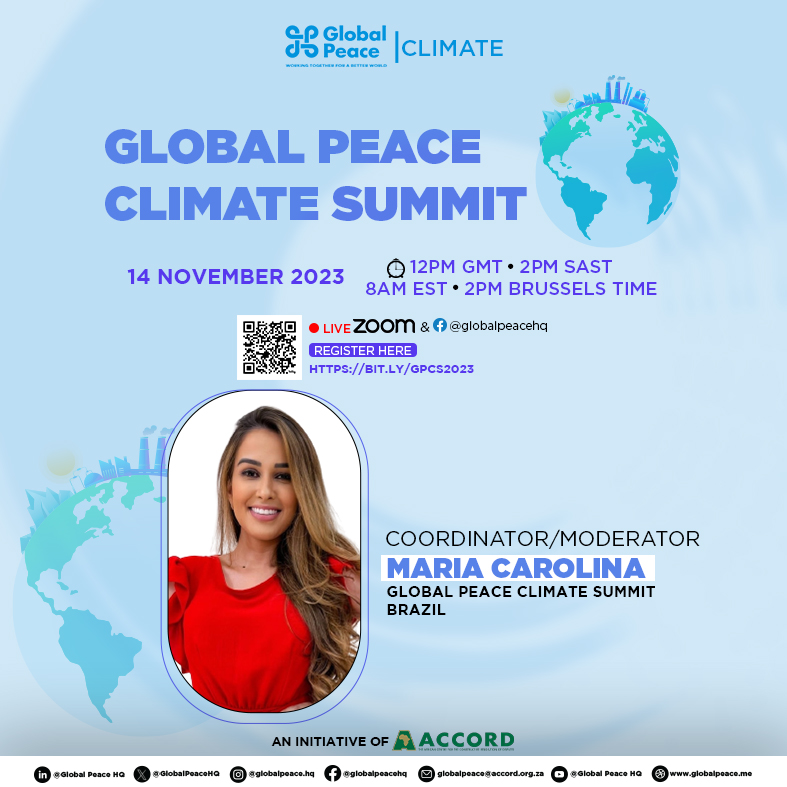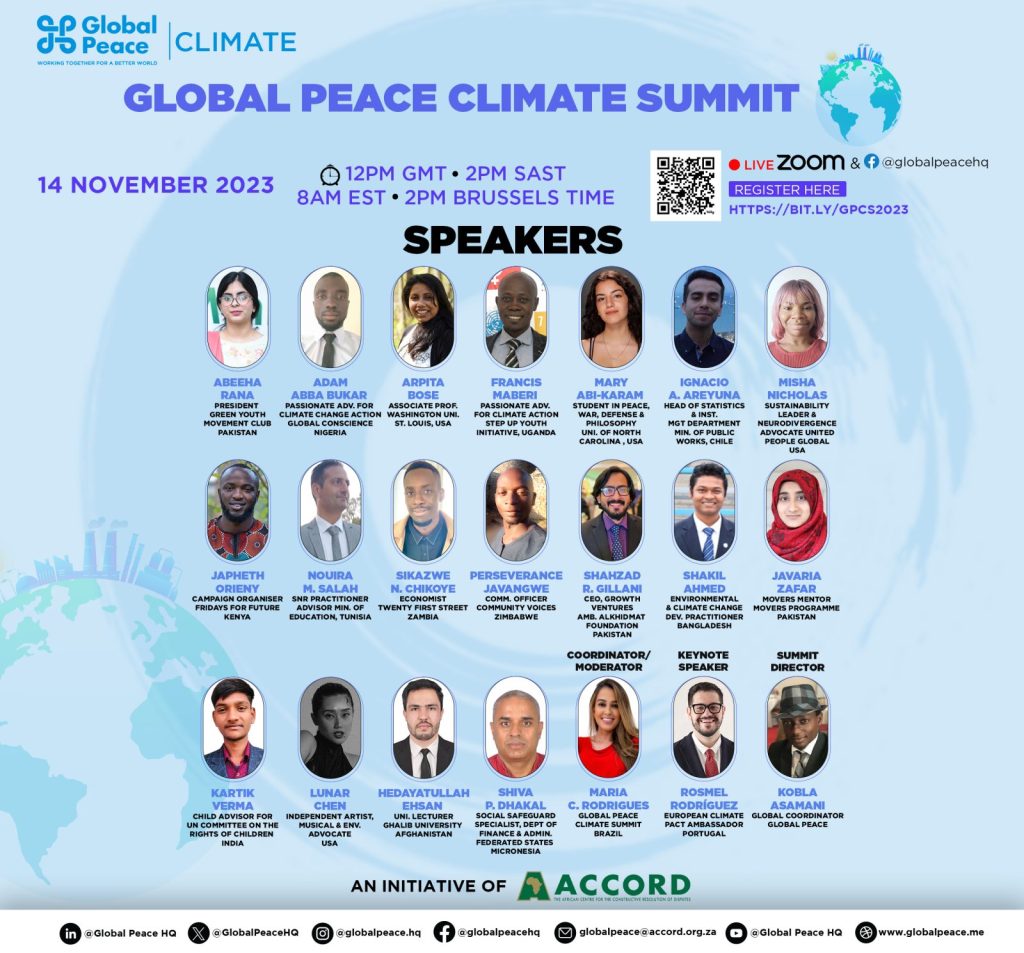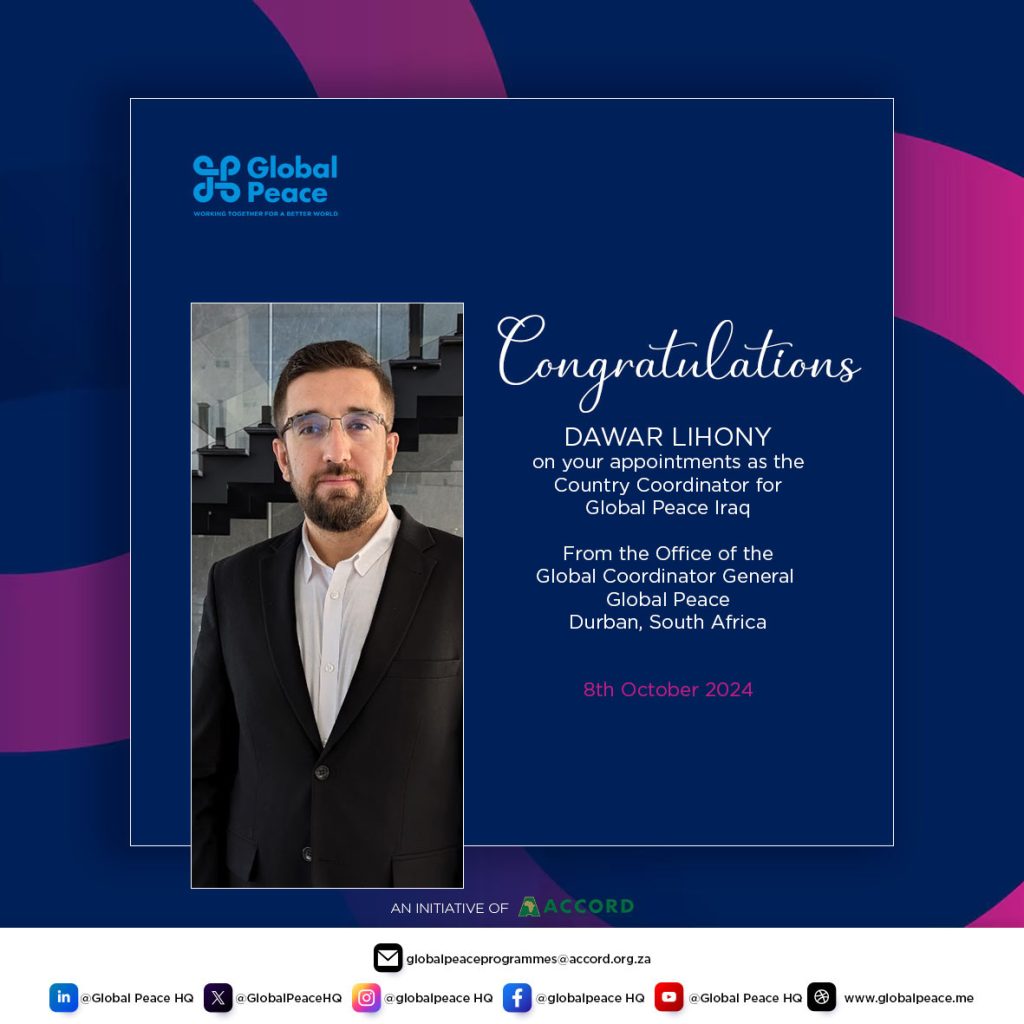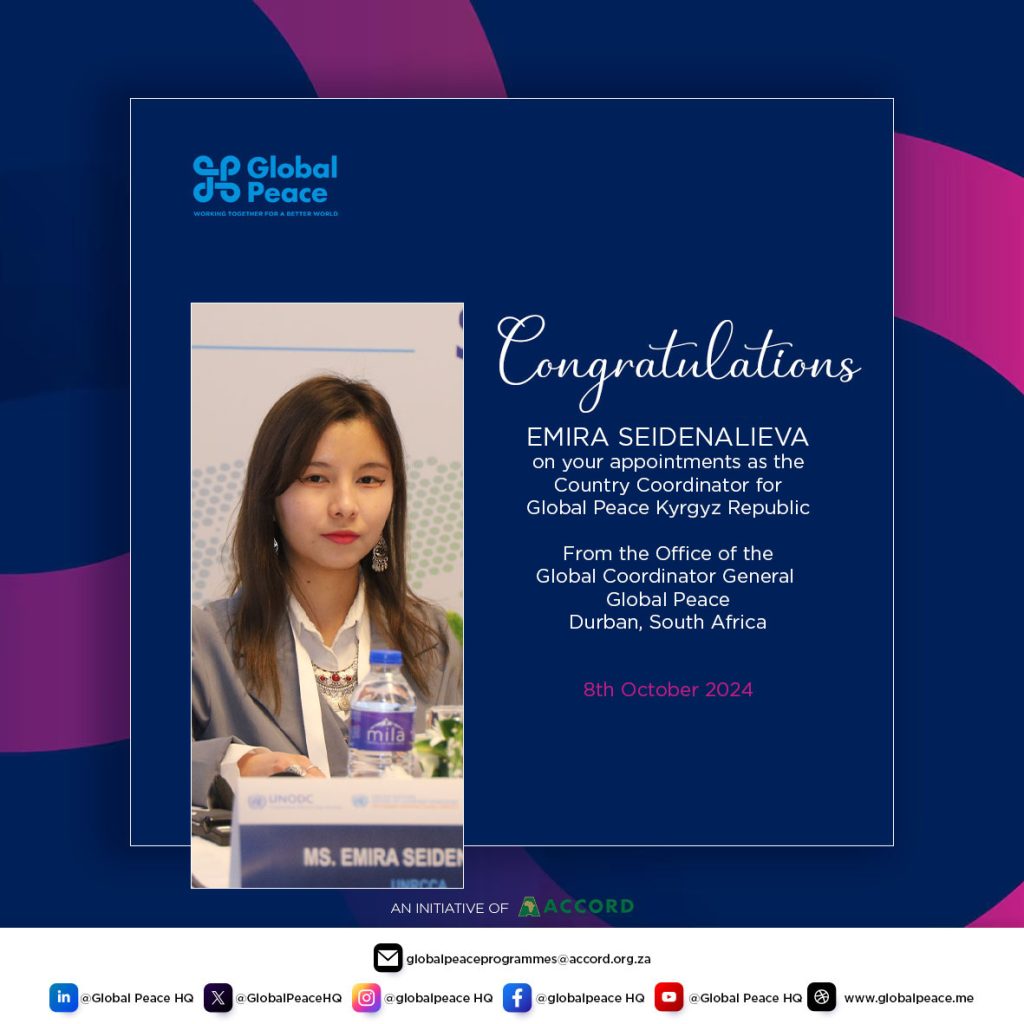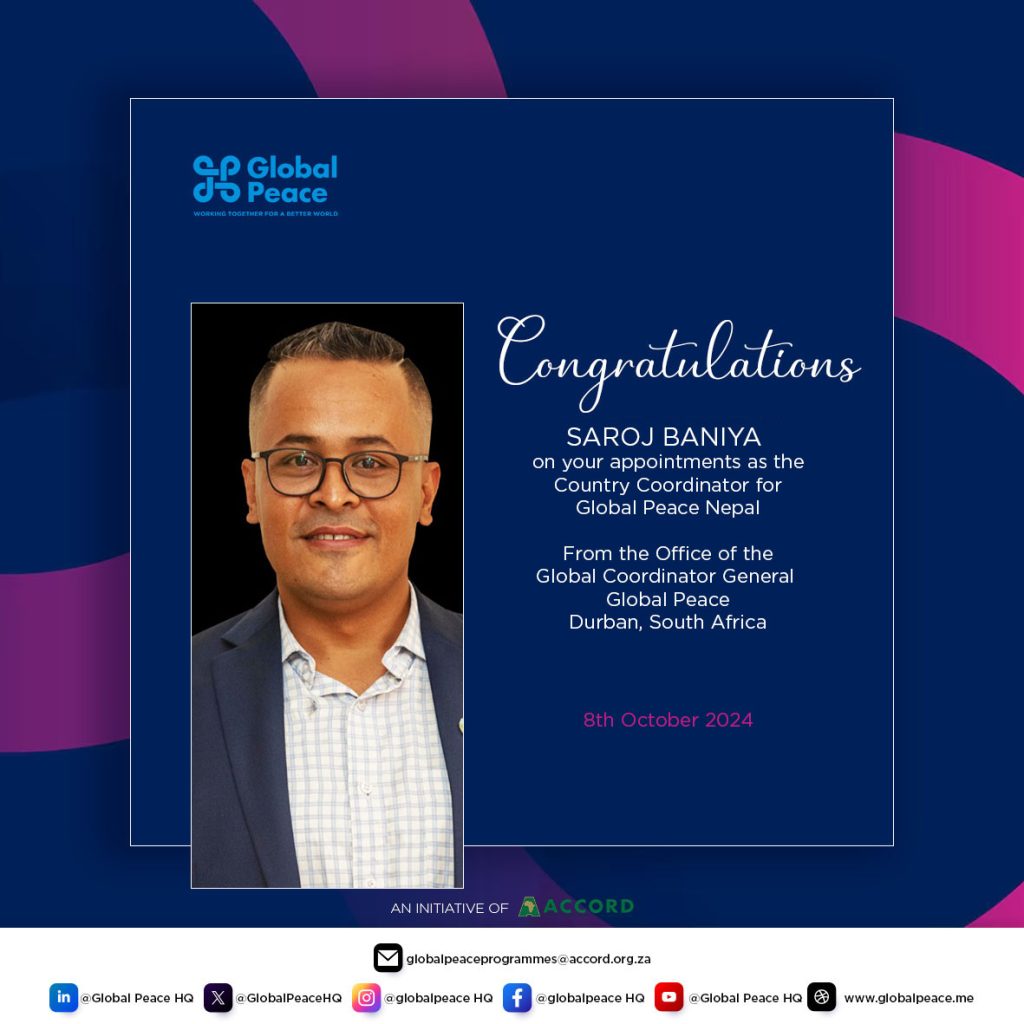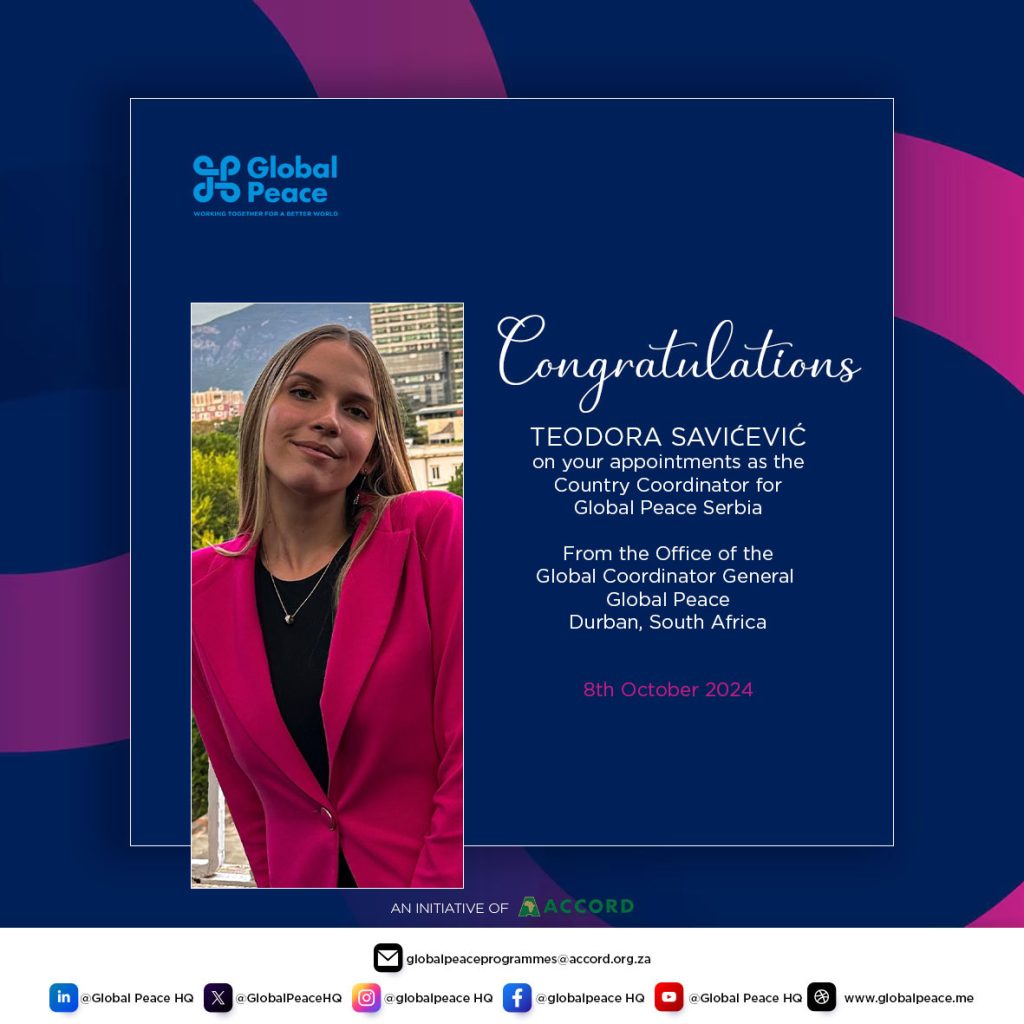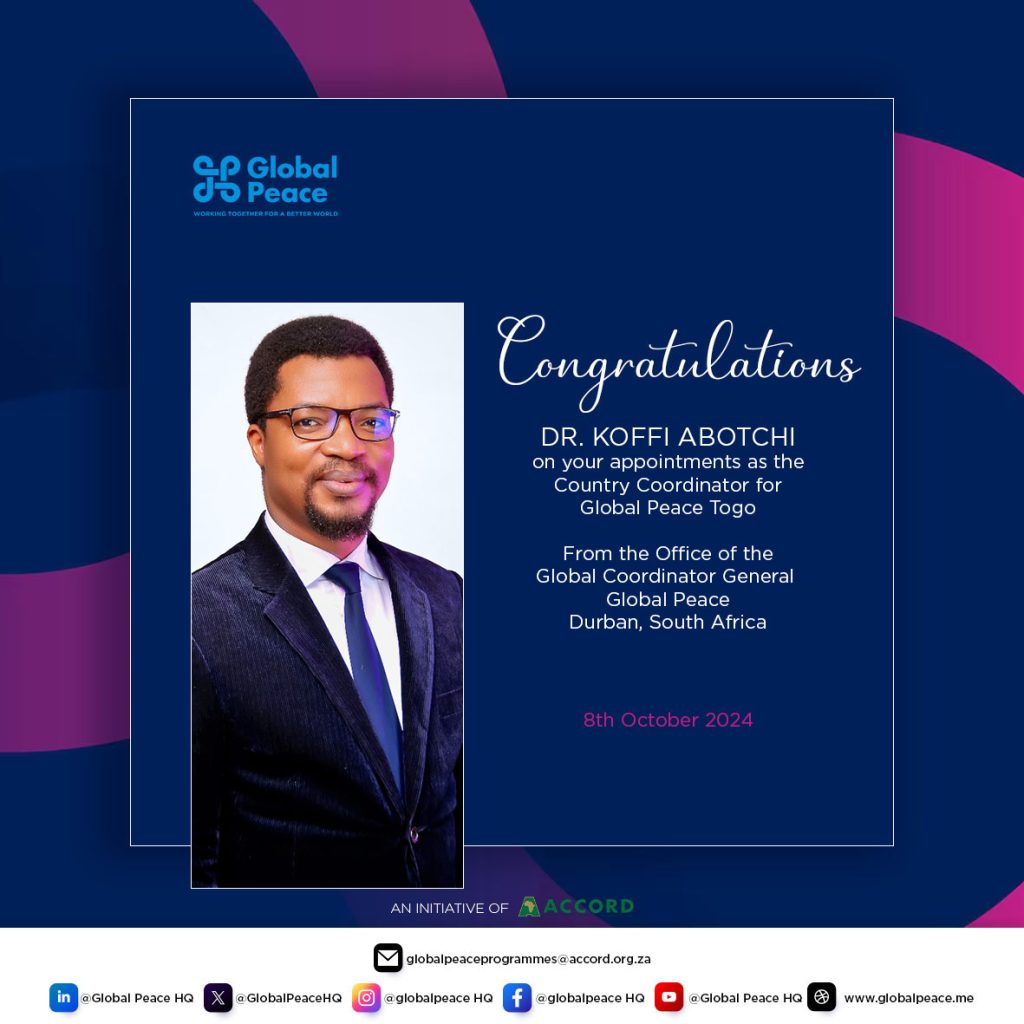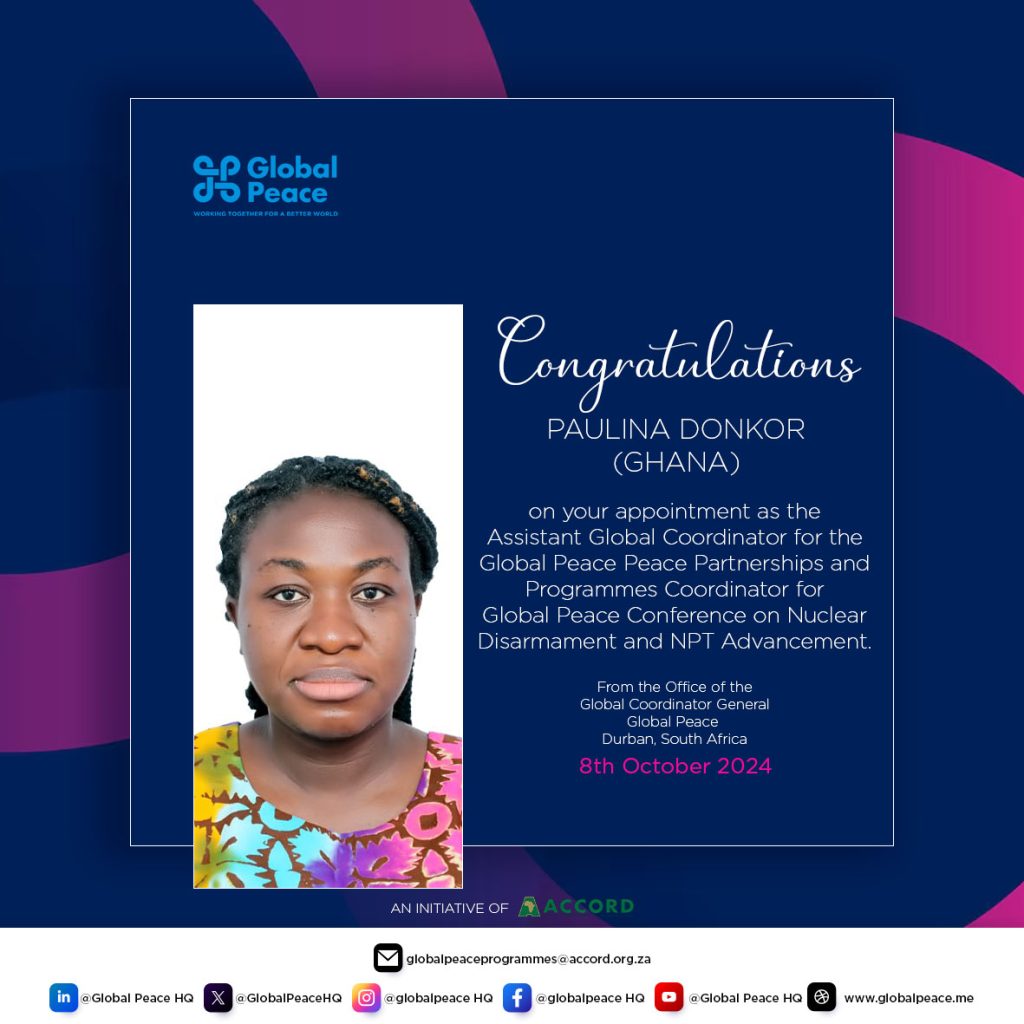On 14 November 2023, Global Peace brought together a global youth constituency to hold a Climate Summit on the theme: “Mobilizing Global Peace Citizens to Mitigate Climate Emergency”. The Global Peace Climate Summit 2023 is grounded on the third Pillar of Global Peace, which is to “Protect and sustain our Environment”. Based on the third principle of Global Peace, the “PLANT TREES NOT BOMBS” campaign was instituted to assist in combatting climate change. This was made possible through a symbolic planting of a “Tree of Peace” at the Durban International Convention Centre in South Africa, home of Africa’s first Nobel Peace Prize laureate, Inkosi Albert Luthuli. The objective of the PLANT TREES NOT BOMBS campaign is to serve as a tool for use by Global Peace in Climate Mitigation.
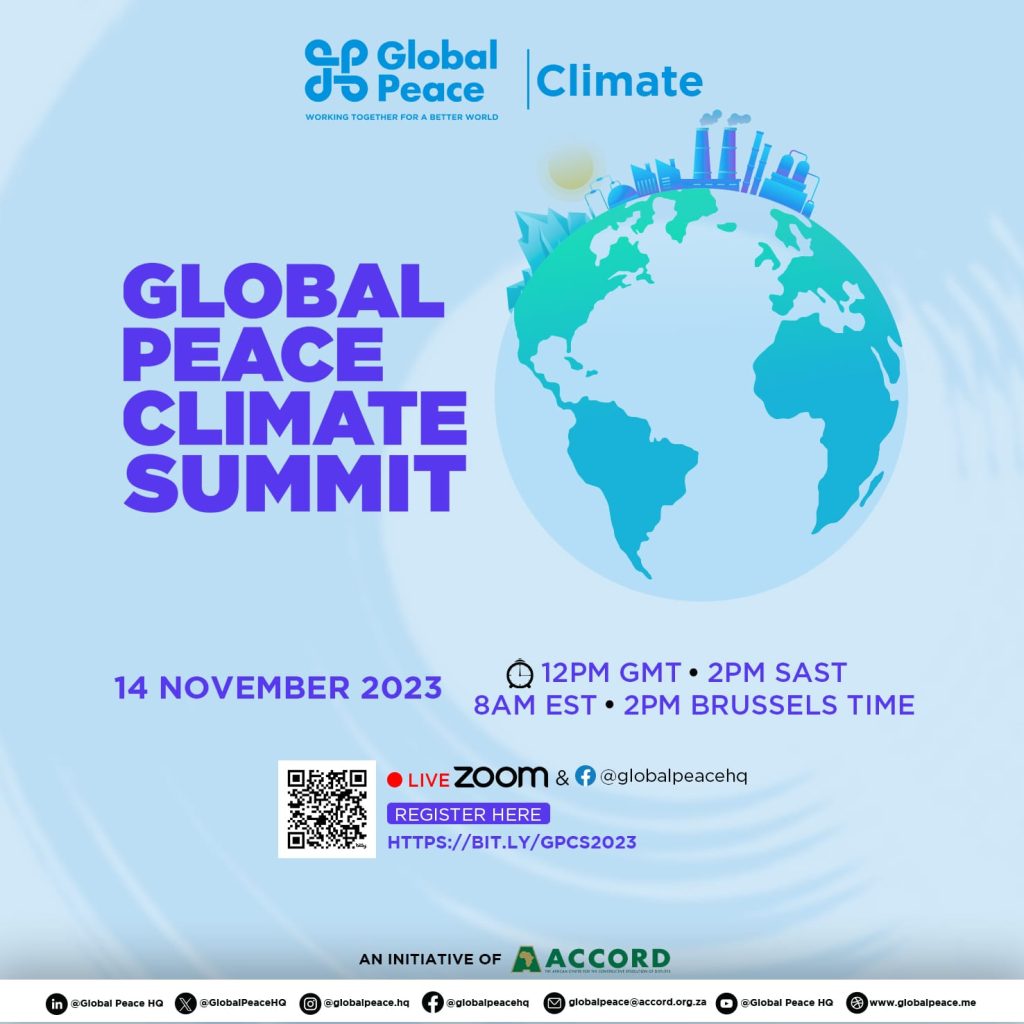
The Global Peace Climate Summit 2023 noted that, all around the world storms, floods and wildfires are intensifying. Speakers further underscored that, air pollution sadly affects the health of tens of millions of people and unpredictable weather causes untold damage to homes and livelihoods too. Speakers therefore called on countries to avert this crisis by joining forces urgently. The Global Peace Climate Summit was held ahead of COP28 to mobilize Global Peace Citizens around the world towards taking action to mitigate the Climate Emergency.
The Climate Summit 2023 was designed to explore diverse conversations on Climate, Peace and Security with young climate activist, leaders, and stakeholders in government, private sector, academia, and civil society, on topical issues of Climate concern ahead of the United Nations Climate Change Conference, COP28 to be held in United Arab Emirates. Distinguished panellist of the summit were selected from Brazil, Portugal, Pakistan, Bangladesh, Zambia, Zimbabwe, Chile, United States of America, India, Tunisia, Afghanistan, Nigeria, Uganda, Kenya and Micronesia.
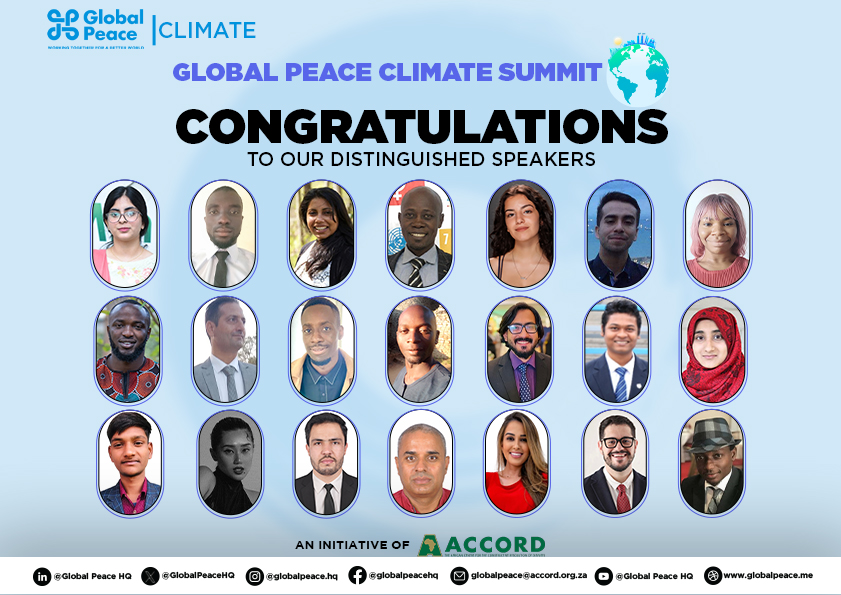
According to the Global Peace Climate Summit, even though there are many opportunities, Global Leaders are not acting fast enough to avert these crises calling on countries to join forces urgently.
The 2028 United Nations Climate Change Conference, more commonly referred to as Conference of the Parties of the UNFCCC, or COP28, is the 28th United Nations Climate Change conference and would be held from 30 November until 14 December 2023 in United Arab Emirates. It will take place under the presidency of UAE Minister of Foreign Affairs, H.H. Sheikh Abdullah bin Zayed Al Nahyan with more than 100 heads of state and representatives of 190 countries expected to attend. The conference has been held annually since the first UN climate agreement in 1992. It is used by governments to agree on policies to limit global temperature rises and adapt to impacts associated with climate change. For the first time ever, something momentous happened: every country agreed to work together to limit global warming to well below 2 degrees and aim for 1.5 degrees, to adapt to the impacts of a changing climate and to make money available to deliver on these aims. The commitment to aim for 1.5 degrees is important because every fraction of a degree of warming results in the tragedy of many more lives lost and livelihoods damaged.
Under the Paris Agreement, countries committed to bring forward national plans setting out how much they would reduce their emissions – known as Nationally Determined Contributions, or ‘NDCs’. They agreed that every five years they would come back with an updated plan that would reflect their highest possible ambition at that time. In the run up to the summit in Glasgow (delayed by a year due to the pandemic) when countries updated their plans for reducing emissions, their commitments laid out in Paris did not come close to limiting global warming to 1.5 degrees, and the window for achieving this is closing. The decade out to 2030 will be crucial. So as momentous as Paris was, countries must go much further to keep the hope of holding temperature rises to 1.5 degrees alive.
To tackle the climate crisis and now a cost-of-living crisis, we need to urgently remake our energy system. How can we democratize and green our energy system by 2030? How can we ensure a renewable energy system doesn’t replicate the extractive and colonial systems embedded in the fossil fuel energy system? What policies are needed and what are the biggest challenges we must overcome?
As indicated by Antonio Guterres, the Secretary-General of the United Nations during the Launch of World Meteorological Organization Provisional State of the Global Climate Report 2022 in Sharm el Sheikh, Egypt, 6 November 2022 as part of COP27 our planet is sending a distress signal. According to Antonio Guterres, the latest State of the Global Climate report is a chronicle of climate chaos. As the World Meteorological Organization shows so clearly, change is happening with catastrophic speed — devastating lives and livelihoods on every continent. The UN also underscored how the last eight years have been the warmest on record, making every heatwave more intense and life-threatening, especially for vulnerable populations. Sea levels are rising at twice the speed of the 1990s – posing an existential threat for low-lying island states, and threatening billions of people in coastal regions.
The Secretary-General has further stated that Glacier melt records are themselves melting away – jeopardizing water security for whole continents. He has therefore called for the urgency of People and communities everywhere to be protected from the immediate and ever-growing risks of the climate emergency, citing the reason there is need to push hard for universal early warning systems within five years. Additionally, Antonio Guterres has called for strong response to answer the planet’s distress signal with action — ambitious, credible climate action stating that COP28 is the place – and now must be the time.
ABOUT THE PROGRAMME COORDINATOR – MARIA CAROLINA: BRAZIL
Maria Carolina is 31 years old Brazilin and married. Maria Carolina’s main objective as a woman, miss Queen and a professional is to inspire female leadership around the world. Maria Carolina uses social media and marketing skills and her voice in a beauty pageantry platform to promote hope across borders and takes her message to every girl and woman in the world.
